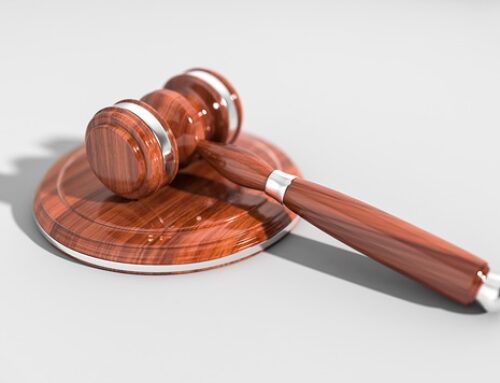The Truth About Credit Repair: Can it Really Remove Collections?
Are you tired of being haunted by collections on your credit report?
Maybe you’ve heard about credit repair and wonder if it’s the solution to your credit woes. But can credit repair really remove collections? The truth is, there’s no simple answer. While it is possible to have collections removed from your credit report such as 11 Charter Communications, it’s not a guaranteed outcome. That’s because credit repair companies can only dispute items on your credit report that are inaccurate, incomplete, or unverifiable.
And even if a collection is successfully disputed and removed, it doesn’t necessarily mean it’s gone for good. The creditor may choose to re-report the collection, or it could resurface in the future. So, before you invest in credit repair, it’s important to understand the process and manage your expectations. In this article, we’ll take a closer look at the truth about credit repair and its ability to remove collections from your credit report.
Understanding the collection process
To understand the impact of collections on your credit report, it’s essential to understand how they end up there in the first place. A collection occurs when a creditor or debt collector attempts to collect a debt that’s past due. If you fail to make payments on time, the creditor may report the account as delinquent to the credit bureaus. After a certain period of time, typically six months, the account may be charged off and sent to a collection agency.
Once a collection appears on your credit report, it can have a significant impact on your credit score. Collections are considered negative items and can stay on your credit report for up to seven years, even if you pay off the debt. The more recent the collection, the more it will impact your credit score.
If you have multiple collections on your credit report, it can be challenging to get approved for credit products like loans and credit cards. Lenders view collections as a red flag, indicating that you may be a high-risk borrower. This is why it’s so important to address collections on your credit report as soon as possible.
The impact of collections on credit scores
Collections can have a significant impact on your credit score. FICO, the most commonly used credit scoring model, considers payment history to be the most important factor in determining your credit score. Payment history accounts for 35% of your FICO score, and collections can have a significant negative impact on this factor.
When a collection appears on your credit report, it can cause your credit score to drop by up to 100 points or more. The more collections you have, the more severe the impact on your credit score. Collections can also hurt your credit utilization ratio, which is the amount of credit you’re using compared to your total credit limit. A high credit utilization ratio can also hurt your credit score.
Can credit repair remove collections?
Many people turn to credit repair companies in the hopes of having collections removed from their credit report. While it is possible to have collections removed, it’s not a guaranteed outcome. Credit repair companies can only dispute items on your credit report that are inaccurate, incomplete, or unverifiable.
If a collection is accurate and verifiable, a credit repair company may not be able to have it removed. However, if a collection is inaccurate or incomplete, a credit repair company can dispute it with the credit bureaus. If the credit bureau cannot verify the collection, it must be removed from your credit report.
It’s important to note that even if a collection is successfully disputed and removed, it doesn’t necessarily mean it’s gone for good. The creditor may choose to re-report the collection, or it could resurface in the future.
The truth about credit repair companies
Credit repair companies promise to help you improve your credit score by removing negative items from your credit report. However, it’s important to be cautious when working with these companies. Many credit repair companies make unrealistic promises and charge high fees for their services.
Some credit repair companies may even engage in illegal practices, such as creating a new identity for you or advising you to dispute accurate information on your credit report. These practices can result in serious consequences, including legal action and damage to your credit score.
Before working with a credit repair company, do your research and make sure the company is reputable. Look for reviews from past clients and check their rating with the Better Business Bureau. You should also be wary of any company that requires payment upfront or promises to remove accurate information from your credit report.
DIY credit repair strategies
If you’re hesitant to work with a credit repair company, there are DIY credit repair strategies you can try. One of the most effective strategies is to dispute inaccurate information on your credit report. You can do this by sending a dispute letter to the credit bureaus and providing evidence to support your claim.
Another DIY credit repair strategy is to negotiate with creditors. If you have a collection on your credit report, you can try negotiating with the creditor to have the collection removed in exchange for payment. Keep in mind that not all creditors will be willing to negotiate, but it’s always worth a try.
Finally, you can work on improving your credit score by paying your bills on time, keeping your credit utilization low, and avoiding new credit applications. These strategies may not have an immediate impact, but they can help you improve your credit score over time.
Tips for improving credit scores
Improving your credit score can be a long process, but there are some tips you can follow to speed up the process. The first step is to get a copy of your credit report and check it for errors. If you find any errors, dispute them with the credit bureaus.
Next, focus on paying your bills on time and keeping your credit utilization ratio low. This means paying off your credit card balances in full each month and avoiding new credit applications. You should also consider opening a secured credit card or becoming an authorized user on someone else’s credit card to help build your credit.
Finally, consider working with a credit counselor or financial advisor to help you create a budget and manage your debt. These professionals can provide valuable guidance and support as you work to improve your credit score.
Alternative options for dealing with collections
If you’re struggling with collections on your credit report, there are alternative options for dealing with them. One option is to negotiate with the creditor to have the collection removed in exchange for payment. Another option is to work with a debt settlement company, which can negotiate with creditors on your behalf to reduce your debt.
If you’re struggling with multiple debts, you may want to consider debt consolidation. This involves taking out a loan to pay off your existing debts, leaving you with one monthly payment and a lower interest rate. However, it’s important to be cautious when working with debt consolidation companies and make sure you understand the terms of the loan.
The importance of credit monitoring
Finally, it’s important to monitor your credit report regularly to stay on top of any changes. You can get a free credit report from each of the three major credit bureaus once a year at AnnualCreditReport.com. You can also sign up for a credit monitoring service, which will alert you to any changes on your credit report.
By monitoring your credit report, you can catch errors and fraudulent activity early, before they have a chance to do serious damage to your credit score. You can also track your progress as you work to improve your credit score and remove collections from your credit report.
Conclusion and final thoughts
While credit repair can be a helpful tool for improving your credit score, it’s not a magic solution for removing collections from your credit report. The truth is, the only way to have a collection removed from your credit report is to dispute it with the credit bureaus and hope for the best. However, there are alternative options for dealing with collections, such as negotiating with the creditor or working with a debt settlement company.
The most important thing you can do to improve your credit score is to pay your bills on time, keep your credit utilization low, and avoid new credit applications. By following these strategies and monitoring your credit report regularly, you can improve your credit score and achieve your financial goals.
Masters Credit Consultants stands as a highly regarded and dependable credit repair service provider.
Our vast experience as credit repair experts in efficiently eliminating detrimental elements from credit reports is aimed at empowering individuals to enhance their credit scores substantially. When you opt for Masters Credit Consultants, you can have full confidence in our proficient experts who will diligently address inaccuracies, challenge erroneous entries, and provide guidance for a more promising financial future. Reach out to us today and let us be your companion on the journey towards attaining a healthier credit profile.
Get in touch with us now at 1-844-620-8796 and let us assist you in significantly elevating your credit score!







Leave A Comment